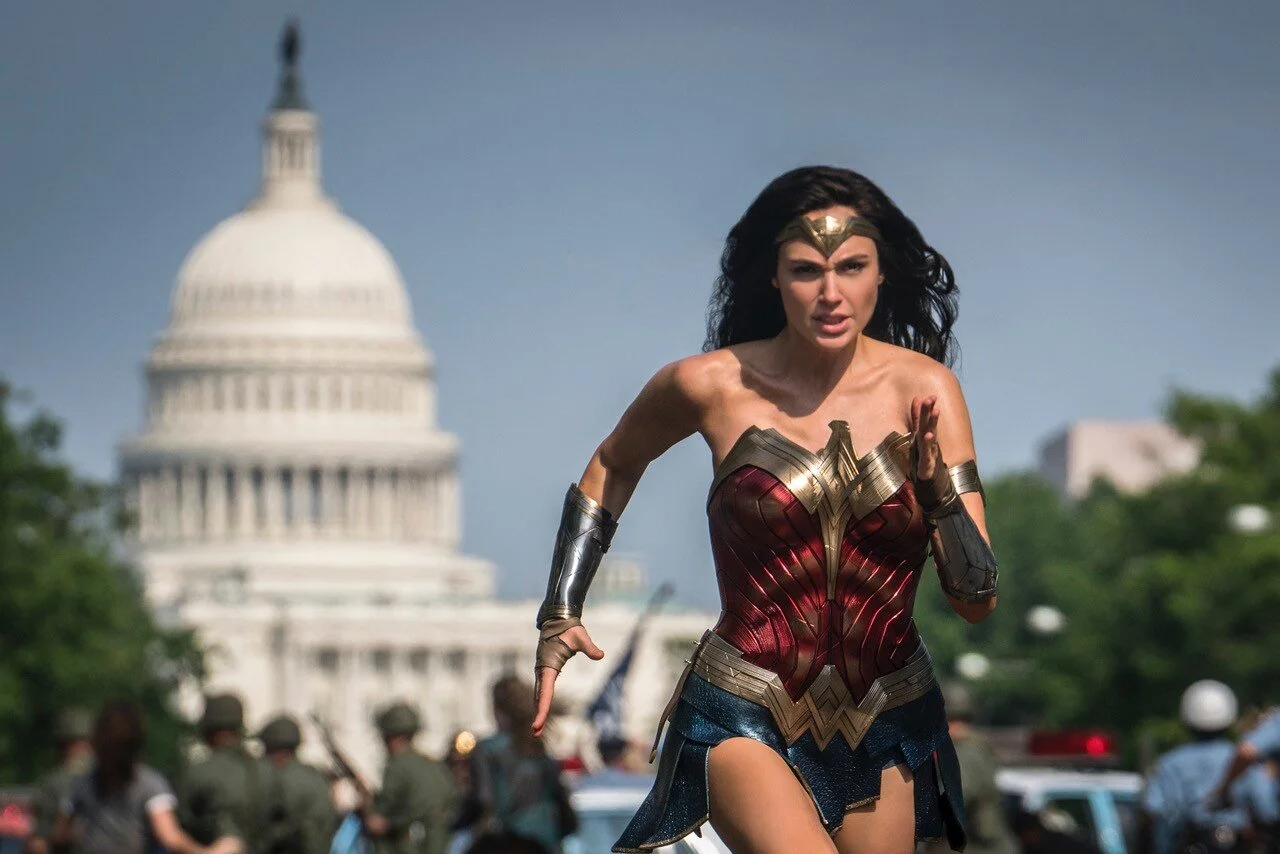Wonder Woman 1984: Final Superhero Movie of 2020 Big on Budget, Small on Impact
By Liam Lacey
Rating: C
Diana Prince, a.k.a. super-heroine Wonder Woman, is back in the last superhero movie of year, opening in theatres if they are open where you live.
You want to escape? Well, there’s a couple of hundred million U.S. dollars up on the screen for action and special effects, and retro amusement provided by pastel-coloured shopping malls, big shoulder pads, and Sony Walkmans.
Patty Jenkins returns as director, co-writer, and producer for a narrative that involves two villains — a Trumpian con man, Max Lord (Pedro Pascal) and a frustrated Wonder Woman admirer (Kristen Wiig) — and a plot involving Middle East oil, a nuclear showdown, and a bad case of raging selfishness around the globe.
All this is framed around a “Dreamstone” talisman, which leads to much moralizing about being careful what you wish for. That might also serve as a way of keeping viewers’ expectations in check, because WW84, as its social media brand goes, is a less ambitious movie than its predecessor, mixing thin satire, rote action, and philosophical bromides.
The best asset of Wonder Woman remains casting the imposing presence of Israeli actress Gal Godot in the lead role. Like Christopher Reeve in the early Superman movies, she’s physically ideal, poised and sincere, especially when dangling on high, interacting only with the clouds.
The human side of her character though, is adrift. Diana Prince is working as a glamorous anthropologist at Washington’s Smithsonian Institution keeping her costume and rope ready to prevent accidents (jogger, crosswalk) and interfering with a mall robbery with her golden lasso of truth. The robbery uncovers a magic “Dreamstone” which grants its possessor wishes at an unpredictable price, ranging from bleeding ears to anti-social personality disorder.
PROUDLY SUPPORTS ORIGINAL-CIN
Because you can’t re-tell your origin story too often, the film begins with a flashback on the all-woman island of Themyscira, where a young Diana (Lilly Aspell) cheats in an obstacle race and is warned, “No hero is born from lies,” and “That is the only truth and truth is all there is.”
We leap from these tautologies to the year 1984 and the city of Washington D.C., where the mood is still bright and campy. Klutzy, insecure antiquities expert Barbara Ann Minerva (Wiig) meets the regal Diana in her leopard-skin high-heels at the Smithsonian and is openly infatuated, in a speech filled with eye-rolling innuendo: “I’m sorry. I’m just surprised, because you just seem like the kind of person who’s, like, always out, like people are asking you to go out all the time and you live out and you’re just out.”
Barbara gets her wish to be “strong, sexy, cool, special” like Diana, though she loses her self-deprecating personality and becomes an uninteresting “apex predator,” a dappled cat-lady called Cheetah. Cheetah hooks up with the other villain, Max Lord, who fronts the Black Gold Oil Cooperative, a scheme of selling subscriptions to undiscovered oil, backed by increasingly antsy investors.
“I am not a con man,” Max protests. “I’m a television personality and a successful businessman with great plans!”
When Max Lord gets the Dreamstone, he plays one of those fool-the-genie tricks and wishes to become the wish-granting stone in human form. He even meets the Reagan-like president at the White House, an ungenial type, who wishes not to “tear down your wall, Mr. Gorbachev” but for “more nuclear weapons.”
Diana’s wish is of course for love, which causes her long-dead WWI flyboy love Steve (Chris Pine) to be resurrected, giving her own version of a pretty sidekick who doesn’t get many lines. Instead, he looks through his radiant baby blues at such wonders from the 1980s as parachute pants and Pop Tarts.
But Diana has to face another one of those dilemmas between love and duty that beset super-heroes: Steve is “the only joy, I've had or even asked for” but keeping him means losing her evil-fighting powers.
All this selfish wishing results in waves of chaos — an oil crisis, nuclear weapons launches in the sky, and fights for parking spaces on the ground. Essentially, this is Bill Murray’s speech from another 1984 movie, Ghostbusters: “Human sacrifice, dogs and cats living together... mass hysteria!” There’s even a major chaotic fight at the White House, or as we’ve come to think of it, another Friday.
Is there a moment when audiences grow weary of apocalyptic collapse? Like Avengers Endgame, Wonder Woman 1984 has big-screen bloat and a message about moderation: “You can’t have it all,” intones the super-heroine to the television people of the world which, given our small-screen confines, seems like a mean taunt.
Wonder Woman 1984. Directed by Patty Jenkins. Screenplay by Patty Jenkins, Geoff Johns, and Dave Callaham. Starring Gail al Gadot, Chris Pine, Kristen Wiig and Pedro Pascal. Opens in select theatres December 25.



